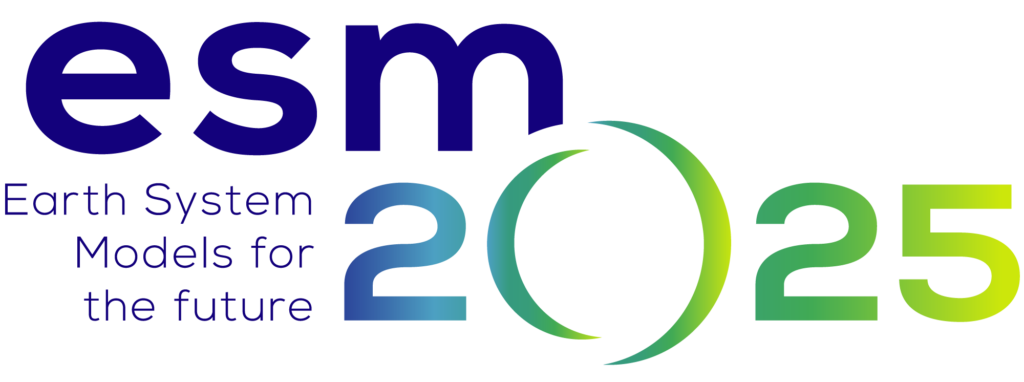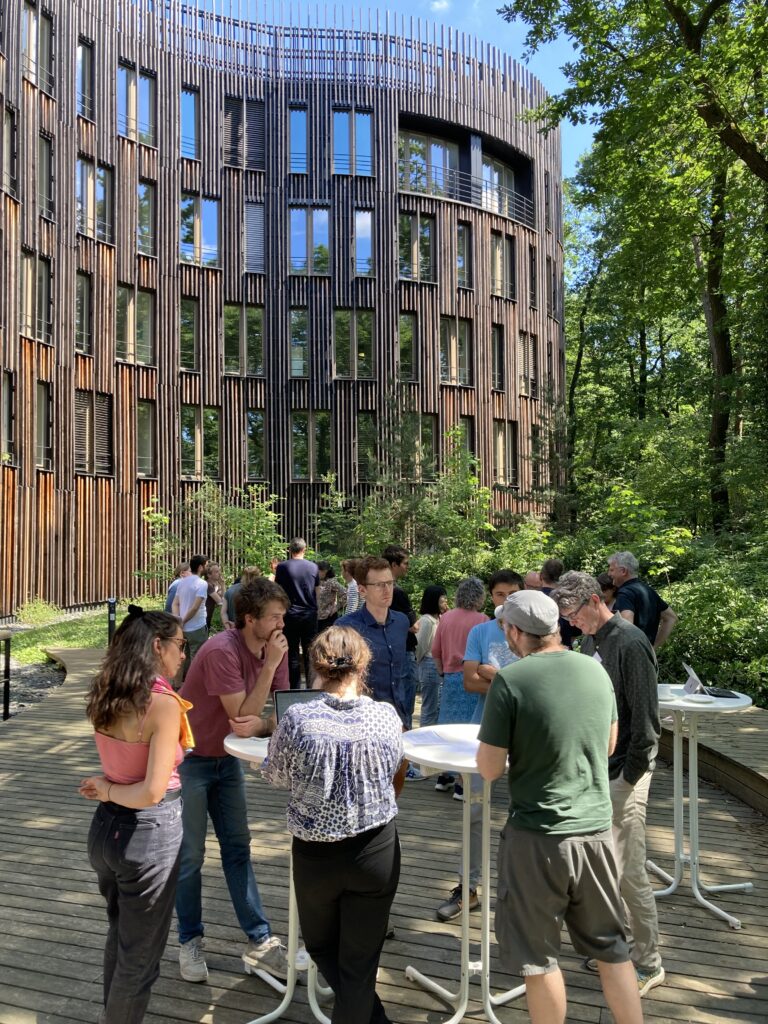How are we connecting to national and local stakeholders?
World Café Summaries
Description
World Cafés provide a unique forum for engaging with local decision makers to discuss the challenges and opportunities of realising the Paris Agreement. Researchers in the ESM2025 project took the opportunity to engage with different local stakeholders each time we met at an annual project meeting.
The World Café is a simple and informal way of engaging people from different backgrounds and perspectives. The method ensures that the stakeholder is in charge of the face-to-face group discussions. Preparation for the Café involves matching stakeholder needs with our expertise in the project and defining some questions and key topics of interest.
“Original, a good opportunity to talk with researchers.”
Discussion at the Cafés provides us with a rich perspective on the different stakeholder needs for information about the climate and Earth system. It was clear to the project members that there were many more questions than answers that we could provide, but this helped reinforce our efforts to ensure that we continue to communicate our research results broadly. Interaction and engagement were beneficial for all parties involved – for stakeholders having access directly to researchers, and for researchers having questions that provided a real-world context of the issues faced by society was really important.
“Interaction with stakeholders is really interesting and energising and helps us realise what our work is used for.”
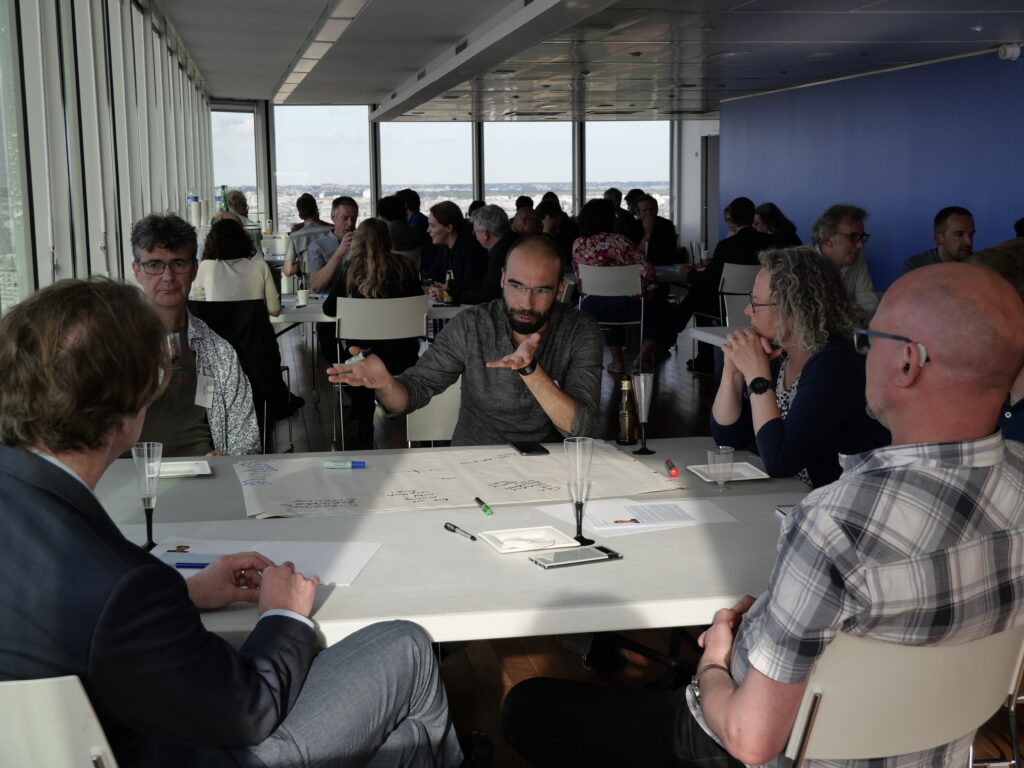
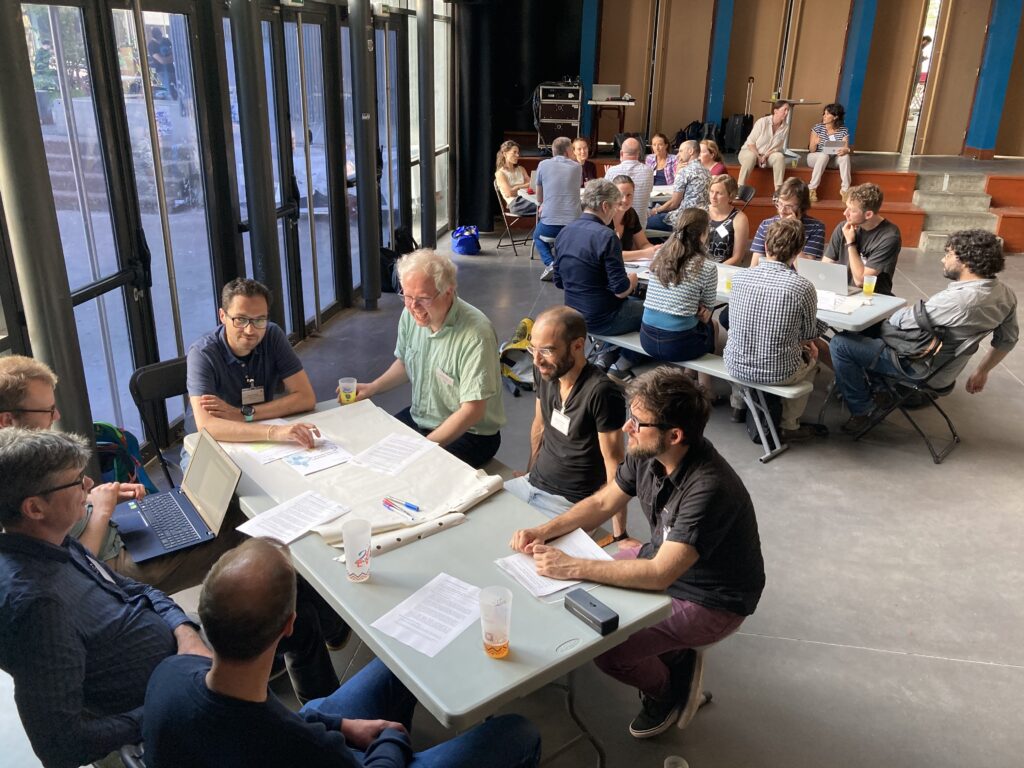
So far, we have held three World Cafés during the project with one left to do in 2025 before the ESM2025 ends.
Our first World Café took place at the Sorbonne University in Paris with stakeholders from the OECD, Haute Conseil pour le Climat, EcoAct, Department Développement durable et numérique de France Stratégie and the European Commission.
Grenoble University was the location for the second World café where we engaged stakeholders from Atmo Auvergne-Rhone-Alpes, MeteoSwiss, Grenoble Alpes Metropole, an Independent Project Manager, Auki, Piman Consultants, Auvergne-Rhone-Alpes Energie Environment Agency, and the National Forestry Office Isère.
For our third World Café, we had our project meeting at the Potsdam Institute for Climate Impact Research (PIK) and took advantage of the fact that the Inter-Sectoral Impact Model Intercomparison Project (ISIMIP) and Tipping Point Modelling Intercomparison Project (TIPMIP) teams are located at PIK.
We are currently writing up summaries of our World Cafes – what we heard from our stakeholders and how we are responding to some of the issues raised.
